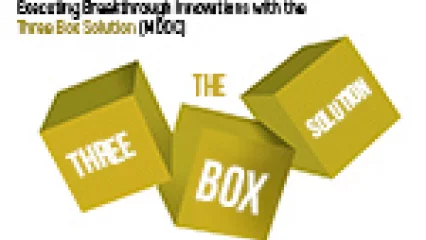This is the Economist's third ranking of executive MBA (EMBA) programs. These pricey, part-time courses for experienced managers are more popular than ever. Yale School of Management (US) tops the ranking this year, up from tenth in 2015. Programs are ranked on two broad measures: personal development/educational experience and career development. On both, Yale excels, ranking first out of 65 programs for pre-MBA salary, quality of faculty, rating of culture and classmates, while the helpfulness of its alumni network was also thought of highly by students.
Check out: 2017 Best US Business Schools Rankings
Yale's program is emblematic of the globe-trotting nature of executive education. A quarter of Yale's class of 2019 are from outside the United States, hailing from 16 different countries. This global outlook extends beyond the nationality of students enrolled on EMBA programs. Three of the top ten programs are run jointly by schools in different countries, or continents: UCLA Anderson School of Management (US) and National University of Singapore; Kellogg School of Management at Northwestern University (US) and the WHU-Otto Beisheim School of Management in Germany; and Kellogg's joint program with York University's Schulich School of Business in Canada. Chicago Booth (US) teaches its EMBA at campuses in Chicago, London and Hong Kong. Two of the top ten are new entrants, including the University of California (US), Berkeley’s Haas Business School (US), and IMD Business School (Switzerland). Yet, while some things do change, some stay the same. A total of 7 of the ten programs this year were also among the ten best in 2015.
Methodology
The Economist has invited all the schools that are included in its annual full-time ranking to take part. Joint degrees that are separate from schools’ standalone EMBAs are ranked individually. Schools that operate a single EMBA across several of their own campuses (such as Chicago’s EMBA, which is taken in Chicago, London and Hong Kong) are treated as a single program.
There is some difficulty in defining exactly what constitutes an EMBA. The Economist therefore allowed the schools themselves to classify their programs. As long as the program was part-time and enrolled students with significantly more work experience than those on their full-time MBAs, they could declare it an EMBA and take part in the ranking.
The Economist collected data using two web-based questionnaires between March and May 2018. One questionnaire was filled out by business schools and included more quantitative measures, such as details of students and faculty, the number of overseas assignments required and statistics on alumni. The second questionnaire was circulated to current students and alumni from schools’ last three graduating classes. Around 8,000 of these questionnaires were completed, and from them the Economist gleaned the more quantitative measures, such as a rating of classmates, faculty, facilities and the like. Alumni also reported their pre-EMBA and current salaries, from which average increases could be calculated.
Programs are ranked on two broad measures: personal development/educational experience and career development. Both categories are equally weighted. Within each category are several subcategories, which are detailed in the table below. Additionally, the Economist weights schools' data from its last ranking in 2015 at 30%, with 70% given to 2018 data.
Check out: How Trustworthy Are MBA Rankings?
Rankings are calculated using z-scores, a statistical technique that measures the number of standard deviations from the mean. This method gives each school an individual rank (it does not allow for equally placed schools). Nonetheless, it means that the difference between schools can sometimes be slight. Hence, we have also placed schools into bands of those whose z-scores are statistically quite close.
Here are the top ten programs. You can see the full ranking here.
| Rank | Business school | Program | Country | |
| 1 | Yale School of Management | Yale MBA for Executives | United States | |
| 2 | UCLA/NUS Business School | UCLA-NUS Executive MBA | United States/Singapore | |
| 3 | Northwestern (Kellogg)/WHU (Beisheim) | Kellogg-WHU Executive MBA Program | United States/Germany | |
| 4 | University of California at Berkeley Haas School of Business | Berkeley MBA for Executives | United States | |
| 5 | IMD - International Institute for Management Development | IMD EMBA | Switzerland | |
| 6 | University of Chicago – Booth School of Business | University of Chicago Booth School of Business Executive MBA Program | United States | |
| 7 | University of Oxford – Saïd Business School | University of Oxford Executive MBA | Britain | |
| 8 | Northwestern (Kellogg)/York (Schulich) | Kellogg-Schulich Executive MBA | United States/Canada | |
| 9 | Northwestern University – Kellogg School of Management | Kellogg Executive MBA Program | United States | |
| 10 | University of Warwick – Warwick Business School | Executive MBA | Britain | |
Source: The Economist



